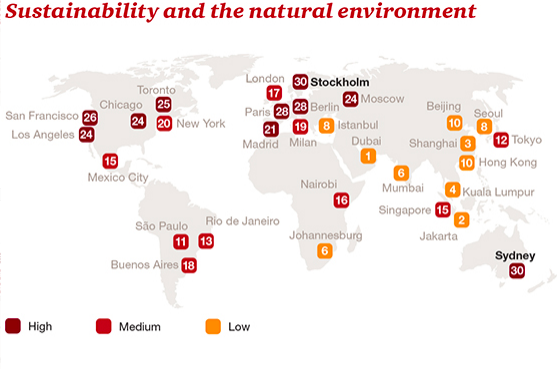Site search:
-
What’s new?
Energy for London Tags
Brent Buildings Camden Carbon Emissions CHP Cities Climate Adaptation Community Heating Community Initiatives Croydon Data DECC Decentralised Energy Distribution ECO Energy Costs Energy Efficiency Enfield FIT Fuel Poverty Funding Green Deal Hackney Haringey Housing Islington Lambeth Library Local Authorities Mayor Newham Ofgem Olympics Photovoltaics Planning RE:FIT RE:NEW Renewable Energy Retrofit Southwark Tower Hamlets Transport Waltham Forest Waste WestminsterEnergy Archives:
- February 2021 (1)
- January 2021 (15)
- December 2020 (15)
- November 2020 (9)
- October 2020 (3)
- August 2020 (5)
- July 2020 (3)
- June 2020 (4)
- April 2020 (10)
- March 2020 (5)
- February 2020 (2)
- January 2020 (3)
- October 2019 (1)
- September 2019 (4)
- August 2019 (2)
- July 2019 (1)
- August 2018 (1)
- November 2016 (8)
- October 2016 (8)
- September 2016 (2)
- August 2016 (8)
- July 2016 (14)
- April 2016 (12)
- March 2016 (16)
- February 2016 (8)
- January 2016 (4)
- December 2015 (1)
- November 2015 (1)
- October 2015 (16)
- September 2015 (3)
- June 2015 (1)
- May 2015 (1)
- April 2015 (1)
- March 2015 (1)
- February 2015 (1)
- January 2015 (1)
- December 2014 (18)
- November 2014 (4)
- August 2014 (8)
- July 2014 (7)
- June 2014 (25)
- May 2014 (8)
- April 2014 (4)
- March 2014 (12)
- February 2014 (7)
- January 2014 (13)
- December 2013 (11)
- November 2013 (15)
- October 2013 (15)
- September 2013 (18)
- August 2013 (5)
- July 2013 (20)
- June 2013 (33)
- May 2013 (8)
- April 2013 (16)
- March 2013 (25)
- February 2013 (14)
- January 2013 (20)
- December 2012 (23)
- November 2012 (23)
- October 2012 (25)
- September 2012 (14)
- July 2012 (12)
- June 2012 (43)
- May 2012 (20)
- April 2012 (8)
- March 2012 (40)
- February 2012 (39)
- January 2012 (40)
- December 2011 (22)
- November 2011 (40)
- October 2011 (33)
- September 2011 (48)
- August 2011 (40)
- July 2011 (58)
- June 2011 (41)
- May 2011 (80)
- April 2011 (38)
- March 2011 (33)
- February 2011 (25)
- January 2011 (24)
- December 2010 (3)
- November 2010 (7)
- October 2010 (6)
- September 2010 (7)
- August 2010 (1)
- July 2010 (2)
- June 2010 (4)
- May 2010 (1)
- March 2010 (3)
- February 2010 (3)
- December 2009 (5)
- November 2009 (2)
- October 2009 (3)
- July 2009 (3)
- June 2009 (1)
- April 2009 (1)
- March 2009 (1)
- February 2009 (1)
- January 2009 (1)
- December 2008 (2)
- October 2008 (1)
- September 2008 (1)
- July 2008 (1)
- March 2008 (2)
- January 2008 (2)
- October 2007 (1)
- September 2007 (3)
- July 2007 (1)
- March 2007 (1)
- February 2007 (3)
- November 2006 (3)
- August 2006 (1)
- February 2006 (1)
- May 2005 (1)
- February 2004 (1)
Tag Archives: Cities
Will the new Energy Secretary push the cities and climate agenda?
14 July 2016: The Department of Energy and Climate Change (DECC) is no more. Rumours started early on in the day via a tweet from the Editor of ConservativeHome:
This was followed shortly after by Energy Minister Andrea Leadsom failing to deny rumours during DECC Oral Questions session in the House of Commons.
City-integrated renewable energy for urban sustainability
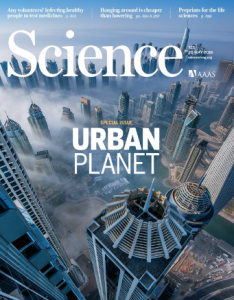 July 2016: A recent issue of the journal Science published a number of articles around the theme Urban Planet. One of the papers published was entitled: City-integrated renewable energy for urban sustainability (link to full text). The paper takes a high-level overview on a range of key carbon reduction opportunities at the city-level.
July 2016: A recent issue of the journal Science published a number of articles around the theme Urban Planet. One of the papers published was entitled: City-integrated renewable energy for urban sustainability (link to full text). The paper takes a high-level overview on a range of key carbon reduction opportunities at the city-level.
“To prepare for an urban influx of 2.5 billion people by 2050, it is critical to create cities that are low-carbon, resilient, and livable. Cities not only contribute to global climate change by emitting the majority of anthropogenic greenhouse gases but also are particularly vulnerable to the effects of climate change and extreme weather. We explore options for establishing sustainable energy systems by reducing energy consumption, particularly in the buildings and transportation sectors, and providing robust, decentralized, and renewable energy sources. Through technical advancements in power density, city-integrated renewable energy will be better suited to satisfy the high-energy demands of growing urban areas. Several economic, technical, behavioral, and political challenges need to be overcome for innovation to improve urban sustainability.”
Posted in Decentralised Energy, Energy Efficiency, Library, News, Renewable Energy, Uncategorized
Tagged Cities
Leave a comment
Future London Climate Risks Set Out
12 July 2016: The Committee on Climate Change (CCC) Adaptation Sub Committee (ASC) published a major new study today providing a detailed scientific assessment of climate change risks to UK. Further information is provided in the following press release, a summary synthesis report, which also links to the individual six sector chapters – which includes a chapter on ‘People and the Built Environment‘ (which is examined below)..
Below is a summary of some of the points most relevant to London from the synthesis report:
- Urban water management: climate change is expected to lead to significant increases in heavy rainfall, with sewers in many urban areas already at or over capacity. More action is needed protect individual properties whilst also beginning to redesign urban landscapes (such as through the use of sustainable drainage approaches) to be able to cope with more intense patterns of rainfall. [p32]
- At present, there are no comprehensive policies in place to adapt existing homes and other buildings to high temperatures, manage urban heat islands, nor safeguard new homes. The level of risk from overheating across the UK is unknown for hospitals, care homes, schools, prisons, and places of work. [p33]
- The urban heat island effect. UK planning strategies do not currently make specific recommendations for reducing the heat island effect such as through planning and urban design, beyond promoting urban green space. [p34]
- More action needed to deliver sustainable drainage systems, upgrade sewers where appropriate, and tackle drivers of increasing surface runoff (e.g. impermeable surfacing in urban areas). [p61]
- Climate-related hazards damage historic structures and sites now, but there is a lack of information on the scale of current and future risks, including for historic urban green spaces and gardens as well as structures.[p66]
- The action underway in London to assess and manage risks of overheating on public transport should continue, together with similar action as needed elsewhere in the UK. [p66]
Posted in Library, News
Tagged Buildings, Cities, Climate Adaptation, Health, Transport
Leave a comment
Urban adaptation to climate change
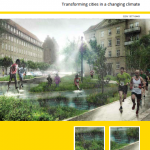 July 2016: A new European Environment Agency (EEA) study “Urban adaptation to climate change in Europe 2016 – Transforming cities in a changing climate” has just been published. The report examines whether action on adaptation has led to more climate-resilient cities and if not, what needs to be changed.
July 2016: A new European Environment Agency (EEA) study “Urban adaptation to climate change in Europe 2016 – Transforming cities in a changing climate” has just been published. The report examines whether action on adaptation has led to more climate-resilient cities and if not, what needs to be changed.
The EEA has a few references to work undertaken in London such as:
- “London is installing white panels on top of its public transport buses to reflect the rays of the summer sun and keep the vehicles cooler” (which refers to a 2014 article here). and that;
- “London held a workshop on adaptation indicators in 2015 but as of November 2015 had not yet decided how it will take the work forward” (it is not immediately clear which workshops this comment refers to).
No mention is made in the study to London’s authoritative Climate Change Adaptation Strategy from 2011 or the London Plan’s climate change adaptation policies. (NB Mayor Boris Johnson had committed in February 2015 to produce an update to the adaptation strategy sometime in 2015. Following the non-publication of this update, responding to a question a year later, he committed to the update being produced before his departure as Mayor (May 2016) – however, as yet, no update has been released).
Energy and Climate Questions to the Mayor
June 2016: Positive to see the focus on energy and climate issues by a number of London Assembly members at the first question time of the new Mayor, Sadiq Khan. This month’s questions included the following issues:
the quantity of electricity supplied to TfL through the Mayor’s Licence Lite operation and few other questions on Licence Lite (here and here); supporting the growth of London community energy schemes; the London Energy Strategy; committing to London’s 25 per cent decentralised energy target; the 2020 nearly zero energy buildings target; the publication of the annual update to the GLA Energy and Climate Change Mitigation Strategy; London Energy Plan supporting studies; supporting the growth of district heating projects; support for London’s 2025 60 per cent carbon reduction target; the future of the RE:NEW and RE:FIT building retrofit programmes; the number of domestic energy efficiency retrofits supported by RE:NEW since January 2015; numbers on the GLA’s boiler scrappage list; ring fencing London’s Zero Carbon Homes offset fund; the number of zero carbon homes that could be built by 2020; zero carbon buildings planning requirements will come into force in 2019; how much money could be raised through the Zero Carbon Homes offset fund; interim targets to the Mayor’s manifesto commitment for London to be a zero carbon city by 2050; climate change and water vapour; how the Mayor will support London’s low carbon economy; emissions from river traffic (and another); zero emission cabs and PHVs abd if CO2 is a pollutant – and finally:
whether the Mayor understands “that further increases in carbon dioxide levels will not significantly increase average global temperatures due to near saturation absorption by CO2 in the 13 – 17 µm band of the infra-red spectrum”.
Previous months questions to the Mayor can be found here.
Cities and the Future of Technology
March 2016: A report has recently been published by President Obama’s Council of Advisors on Science and Technology report recommending ways to make the most of technology and innovation opportunities for cities.
The report considers how the “urban ecosystem can benefit from the integration of a wide array of technologies that have been evolving rapidly, including systems to increase energy efficiency, renewable energy technologies, connected and autonomous vehicles, water and wastewater management systems, communications technologies to enhance connectivity, and new ways to do farming and manufacturing.”
Energy systems considered supporting in city environments include: Distributed renewables, Co-generation, District heating and cooling, Low-cost energy storage, Smart-grids, micro-grids, energy-efficient lighting and Advanced HVAC systems.
Four key recommendations are made in the report – the first of which is:
“The Secretary of Commerce, working with the Secretaries of Housing and Urban Development, Transportation, and Energy, should establish an interagency initiative, the Cities Innovation Technology Investment Initiative (CITII), which will encourage, coordinate, and support efforts to pioneer new models for technology-enhanced cities incorporating measurable goals for inclusion and equity.”
Similar recommendations on coordinating UK government policy action across various departments – especially in relation to supporting the roll out of low carbon energy systems – have been made over the past two years in DECC’s D3 report, the IPPR’s City Energy Report and ERP’s cities report. Though no such cross-departmental unit has as yet been established, it is interesting to note that DECC are working with a number of the cities involved in the government’s city devolution process, and are referred to in Liverpool’s devolution agreement and Manchester’s Devolution Agreement.
Posted in Decentralised Energy, Energy Efficiency, Library, News, Renewable Energy
Tagged Cities
Leave a comment
The Pope’s Encyclical on Climate Change & Cities
19 June 2015: It’s unlikely I’m going to get through the full 180 pages of the Pope’s Encyclical on Climate Change (by the way – if you’re looking for the contents page – it’s at the end of the document), but I did want to see if there was anything there on cities – and was pleased to see that there is specific consideration on how the quality of life of urban dwellers is impacted on by the state of the environment around them.
Selected below are parts of the Encyclical that touch upon the challenges placed upon cities due to environmental stresses and increasing climate change. Much of it is quite general, and much of it is probably more targeted at those growing mega-cities of the South – but the points equally resonate to pockets of deprivation in London as well as in many other developed cities.
“44. Nowadays, for example, we are conscious of the disproportionate and unruly growth of many cities, which have become unhealthy to live in, not only because of pollution caused by toxic emissions but also as a result of urban chaos, poor transportation, and visual pollution and noise. Many cities are huge, inefficient structures, excessively wasteful of energy and water. Neighbourhoods, even those recently built, are congested, chaotic and lacking in sufficient green space. We were not meant to be inundated by cement, asphalt, glass and metal, and deprived of physical contact with nature.
A Global Survey of Building Energy Efficiency Policies in Cities
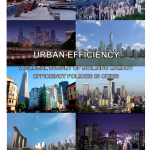 December 2014: A pretty major study undertaken for the C40 Cities network – ‘Urban Efficiency: A Global Survey of Building Energy EfficiencyPolicies in Cities’ – which was sponsored by Tokyo Metropolitan Government. The report is available to download here.
December 2014: A pretty major study undertaken for the C40 Cities network – ‘Urban Efficiency: A Global Survey of Building Energy EfficiencyPolicies in Cities’ – which was sponsored by Tokyo Metropolitan Government. The report is available to download here.
The report’s objectives in terms of building energy efficiency programmes were to:
- capture the range of different policies being implemented in cities around the world;
- obtain detailed information on the necessary conditions, opportunities and potential challenges when introducing and implementing such initiatives; and
- analyse what approaches have been successful in which context and why.
The policies it highlights as being most commonly implemented across cities across the world include:
- Building Energy Codes
- Reporting and benchmarking of energy performance data
- Mandatory auditing and retro-commissioning
- Emissions trading schemes
- Green building rating and energy performance labelling
- Financial incentives
- Non-financial incentives
- Awareness raising programmes
- Promoting green leases
- Voluntary leadership programmes
- Government leadership
A chapter – ‘Experiences from Frontrunner Cities’ – presents detailed case studies from “ten pioneering C40 cities implementing various kinds of programmes to drive energy efficiency and sustainability in existing commercial and residential buildings” – but doesn’t unfortunately include experiences from London. London is however included in a ‘policy map’ survey for new and existing buildings (pages 19-21).
Page 34 mentions “Almost all cities have shown a willingness to lead by example. In London, all new buildings for the Greater London Authority are required to meet the London Development Agency’s Sustainable Design and Construction Standards or exceed targets in the London Plan.” Some information on the application of the LDA’s SDC Standards can be seen from a MQ from earlier this year here.
Elsewhere in the report, London’s Better Building Partnership initiative is referenced. Pages 40 and 41 also provide a useful list of weblinks to London documents on energy efficiency initiatives.
Cities, Energy & Climate Change Mitigation Conference
July 2014: Papers from the University of Leeds ‘Cities, Energy and Climate Change Mitigation‘ conference held on 10th and 11th July 2014 now available online. Nothing specific to London – however – a great presentation from Imperial College’s James Keirstead questioning what actually an ‘urban energy system’ is!
Details of James’ recent book – Urban Energy Systems: An Integrated Approach – can be viewed here.
How climate adaptation in cities creates a resilient place for business
10 July 2014: A new study by the Carbon Disclosure Project (CDP) reporting on how the “majority of the world’s major cities have disclosed that climate change presents a physical risk to the businesses operating in their cities.”
The press release sets out that CDP has “examined data from 50 cities where 78 companies have reported that they expect climate change to have a physical effect,” and the study illustrates action taken through a number of city case studies, including one looking at how London uses its planning powers.
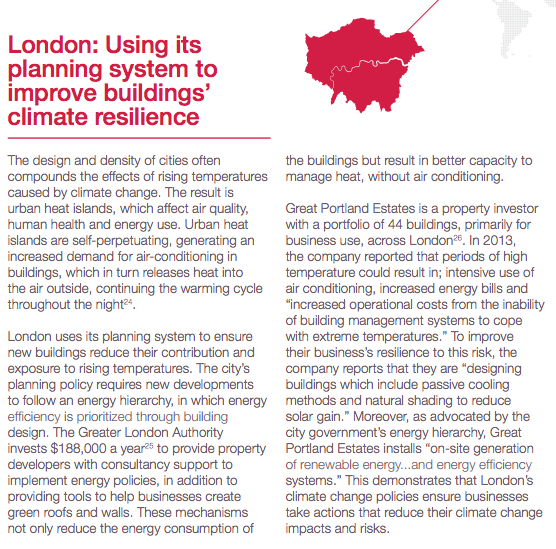 The case study states that the GLA provides “property developers with consultancy support to implement energy policies”. However, what actually happens is that expert consultancy support is brought into the GLA to provide guidance to planning officers to ensure that developers are complying with climate mitigation policies set out in London’s spatial planning strategy – the London Plan. This is fully explained in a reference actually cited in the CDP report – which links to a GLA approval document providing background details for this consultancy spend, which sets out that:
The case study states that the GLA provides “property developers with consultancy support to implement energy policies”. However, what actually happens is that expert consultancy support is brought into the GLA to provide guidance to planning officers to ensure that developers are complying with climate mitigation policies set out in London’s spatial planning strategy – the London Plan. This is fully explained in a reference actually cited in the CDP report – which links to a GLA approval document providing background details for this consultancy spend, which sets out that:
- The GLA have procured energy engineering consultancy support from 1st April 2014 to 30th March 2018, with a value of up to £440,000.
- This technical support has helped secure CO2 emissions reductions of 36% more than 2010 Building Regulations requirements for developments
- This support helps provide officers with an assessment of complex energy systems such as Combined heat and power systems, district heating network specifications, the use of heat pumps etc.
Analysis published at the end of last month by the GLA provides some detailed information on how this consultancy support has helped secure significant levels of low carbon investment in new London developments. Full details here.
Data on climate adaptation measures installed in new London development are less well documented. A recent Mayoral Question (MQ) set out an estimate on the number of green roofs installed in London. A further related MQ touch upon the Mayor’s plan to develop an interactive map on green roofs in London.
“London urged to prepare for killer heatwaves that could melt roads”
June 2014: The Evening Standard reports that “Heatwaves that could kill hundreds of people and melt roads are expected to hit the UK every other year within the next few decades, experts warned today. The Met Office urged London’s authorities to plan for the conditions.”
The report follows an evidence session at City Hall at the London Assembly Environment Committee asking ‘Can London cope with severe weather events in the future?‘ where experts from Committee on Climate Change the National Centre for Atmospheric Science, the Met Office, and the Environment Agency gave evidence to the Committee – all of which can be viewed here.
Cities of Opportunity
May 2014: A new PWC study “analyzes the trajectory of 30 cities, all capitals of finance, commerce, and culture—and, through their current performance, seeks to open a window on what makes cities function best”. Looking at the ‘Sustainability and natural environment‘ criteria – London came around midway.
Page 42 of the report provides some detail behind this sustainability criteira and the ranking of the cities, with London scoring 79 points – and Stockholm coming first with a total score of 121 points – against categories surveyed which included ‘thermal comfort’, ‘recycled waste’, ‘air pollution’, ‘public park waste’ and …’natural disaster risk’.
The study also reports that across all sectors surveyed, which include areas such as innovation, technology, and transportation and infrastructure, London has the highest overall score by “a good margin”.. which is nice!





